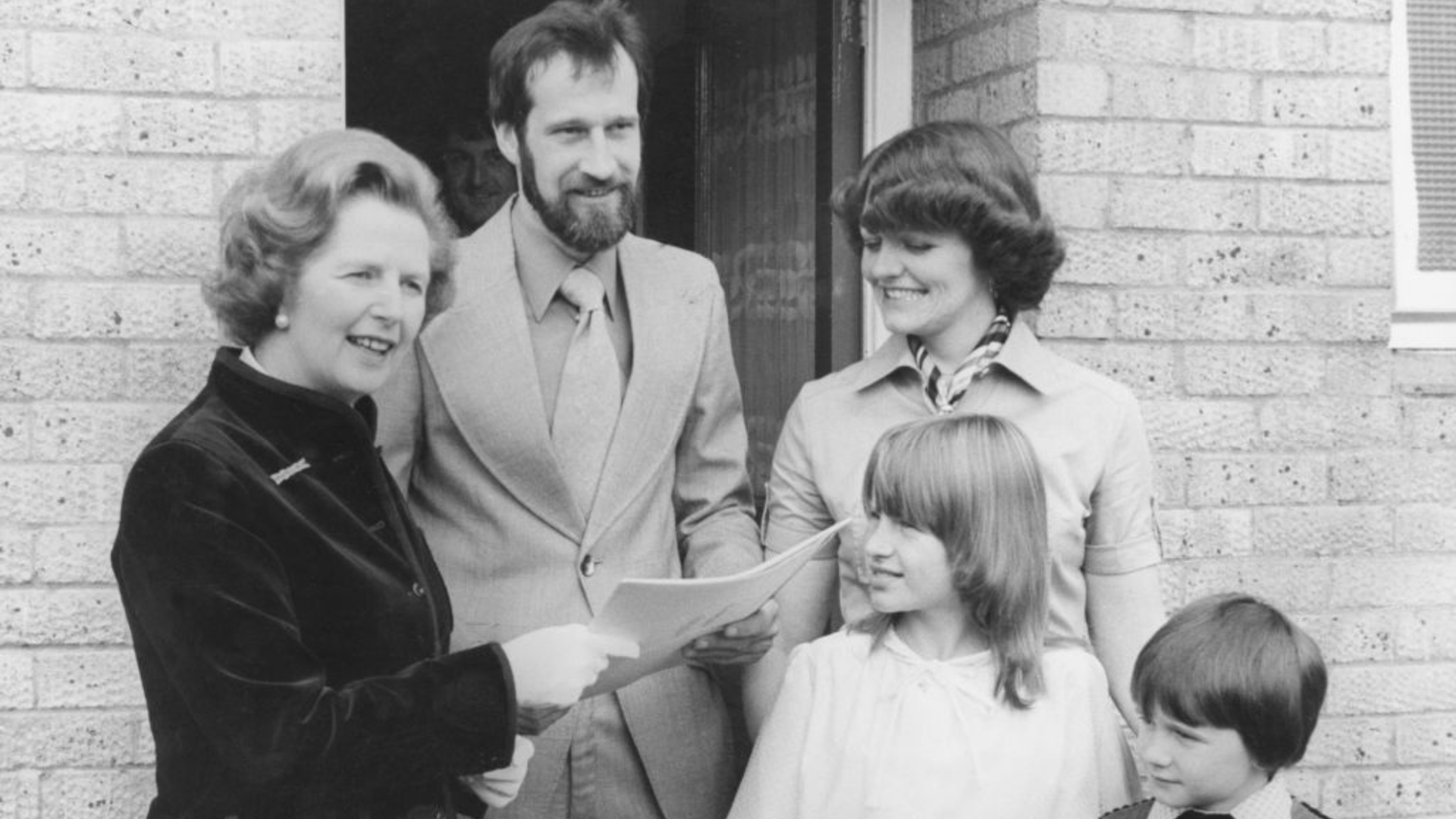The legacy of Thatcher's Right to Buy

The legacy of Thatcher’s Right to Buy
Early this year, a biography by the Tory peer Lord Ashcroft of Angela Rayner, Labour’s deputy leader, accused her of failing to pay a capital gains tax bill when she sold her former council house in Stockport 2015. (Rayner claims that she was not liable because the house was her principal private residence.)
However, a secondary charge levelled by Ashcroft was of “hypocrisy”: like many on the Left, Rayner is a critic of Right-to-Buy legislation, one of Margaret Thatcher’s signature policies. Yet she herself benefitted from it, receiving a considerable discount when she bought the house in 2007, later making a £48,500 profit on the sale.
Did Thatcher invent the right to buy?
While it’s now strongly associated with Thatcherism, some social housing tenants had been able to buy their homes since 1936. In 1959, a more extensive Right to Buy featured in Labour’s election manifesto. Tory councils undertook sales schemes in the 1960s, and by the early 1970s it was established as Conservative Party policy.
After WWII, Labour and Tory governments had competed over which party could build the most social homes to replace inner-city slums: Harold Macmillan made his name by delivering 300,000 homes a year as Churchill’s housing minister in the early 1950s. By 1980, around one in three households in the UK was public-owned.
But while Labour was content for this to continue, the Tories preferred to think of social housing as a safety net; council house sales would give the working classes a stake in a “property-owning democracy”.
So what did Thatcher change?
Thatcher’s government made two major changes. First, the Housing Act 1980 gave council tenants of more than three years’ standing the right to buy their home at a substantial discount on the market price, calculated according to how long they’d lived there. By 1988, the average discount was 44%; the maximum was 70%.
Second, it legislated to prevent councils from using most of the income from sales to build more housing. Labour’s ambition had been to build two homes for each one sold. Thatcher’s legislation made this impossible by imposing strict limits on council spending, and later by requiring local authorities to use 75% of sales receipts for paying down debt, until all debts were paid off.
Further legislation encouraged councils to transfer their remaining property holdings to housing associations – non-profit private-sector bodies that can borrow without affecting central government’s debt figures.
Was the policy a success?
As the minister in charge, Michael Heseltine, put it, “no single piece of legislation has enabled the transfer of so much capital wealth from the state to the people”. Annual sales, which had previously peaked at 45,000 in 1972, reached 174,697 in 1982. By 1997, more than 1.7 million dwellings had been sold off. The sums involved are massive: over 40 years, it has earned the Treasury more than £47bn in sales.
For many buyers, the policy was life-changing. It helped home ownership jump from 55% of householders in 1979 to 71% in 2003. It gave council tenants the opportunity to sell up and move, which was difficult for those in the council system.
Electoral politics was also reshaped. The more affluent working class contained many swing voters. Buyers – who typically earned twice as much as the average council tenant – switched allegiance to the Conservatives in significant numbers. To many, the policy felt like “a way to change your fortunes”, says the housing expert Vicky Spratt – a kind of “British dream”. But there were downsides, too.
What sort of downsides?
The introduction of the right to buy coincided with a decline in social housing construction. No commitment was made to replace properties sold, and the policy contributed to a significant reduction in the social housing stock. In England, there were around 5.5 million units in 1979; today there are about 4.4 million.
Thatcher’s policy was designed at a time when there was a glut of cheap housing and the population was stable or falling. Neither of these is true now and, as all main political parties acknowledge, the country is in the grip of a housing crisis. There are 1.2 million households on social housing waiting lists in England today.
And arguably, rather than creating a property-owning democracy, in the long run the policy has merely boosted the private rental sector. The proportion of owner-occupiers has fallen back to about 65%.
Is the right to buy still in force?
The devolved administrations in Scotland and Wales abolished it in 2016 and 2019, respectively. But it remains in force in England and Northern Ireland.
The 1997-2010 Labour government contented itself with slashing the discounts and extending the qualifying period before tenants can buy. Some of these were reversed by the Tory-Lib Dem coalition in 2012. However, the coalition also pledged to replace purchased homes at a 1:1 rate, and allowed councils to use some Right-to-Buy sales receipts to help build replacement homes.
This 1:1 target has not been met. The Local Government Association (LGA) estimates that 120,000 homes have been sold since 2012 and only 43,000 replaced, because the cost of building a new home almost always exceeds the money received.
What is likely to happen next?
The current Government is “committed” to extending the right to buy to housing associations, though this plan appears to have stalled. To boost house building, it is giving 100% of sales receipts to councils this year and next.
The LGA wants councils to be given all the cash from social housing sales in perpetuity, to ensure that home ownership for some is not prioritised over access to social housing for all who need it.
Labour, if elected, would reduce the discounts given to buyers to pre-2012 levels, and would increase the length of time new tenants would have to wait until they had the right to buy.
